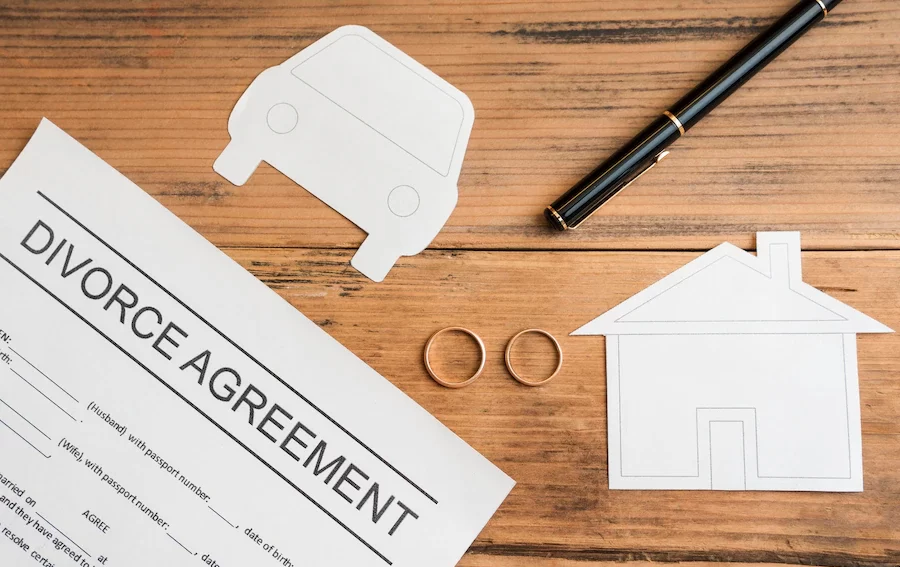Life After Divorce In Florida

Divorce is a life-altering event that can bring significant changes and challenges. In Florida, where divorce rates have been consistently high over the years, individuals have to navigate the process of rebuilding their lives post-divorce.
According to the Florida Department of Revenue’s publication, “Divorce in Florida,” individuals who are currently divorced or separated should be aware of the following general guidelines that they can follow going forward. An effective dissolution of marriage can help individuals regain control over their lives.
These tips can help individuals avoid many of the financial, emotional, and logistical issues that arise after a divorce.
Divorce Statistics In Florida:
Divorce is difficult for everyone. Financial issues may accompany the emotional turmoil of a breakup. Everyone’s situation is different, and each divorce is unique. Many people may have to make changes to their standard of living, possibly moving from an expensive home into a smaller apartment or renting a room. To provide a context for understanding the impact of divorce in Florida, let’s consider some statistics:
- According to data from the Florida Department of Health, there were 66,174 divorces in Florida in 2019.
- The divorce rate in Florida stands at approximately 12.5 per 1,000 population.
- Florida consistently ranks among the states with the highest divorce rates in the United States.
Emotional And Mental Well-Being:
Divorce can often have a profound emotional and mental impact on individuals. It is significant to recognize the different perspectives and experiences that people go through during this difficult time.
- Healing and Recovery: Many individuals find that counseling or therapy is beneficial in helping them cope with the emotional aftermath of divorce. Seeking professional help can provide a safe space for discussing feelings of loss, anger, and sadness.
- Building a Support Network: Creating a support system of family, friends, or support groups can help individuals feel less isolated and navigate the challenges that arise during the post-divorce period.
- Self-Care: Practicing self-care activities such as exercise, meditation, and engaging in hobbies can help individuals rebuild their sense of self and find happiness and fulfillment.
Read Also: Amber Heard Net Worth – Lifestyle, Career, Awards, And Relationship
Financial Considerations:
Divorce often brings significant economic changes for both parties involved. The financial aspect of life after divorce is a crucial component to consider:
❖ Property Division: In Florida, assets and debts acquired during the marriage are generally divided evenly between the spouses. Understanding the laws and seeking legal advice regarding property division can help individuals protect their financial interests.
❖ Alimony: In certain circumstances, one spouse may be entitled to receive financial support from the other spouse, known as alimony. Factors such as the length of the marriage, each party’s financial resources, and contributions to the marriage are considered when determining alimony.
❖ Financial Planning: Creating a post-divorce financial plan with the help of a financial advisor can provide guidance in managing expenses, rebuilding savings, and planning for the future.
Housing And Lifestyle Changes:
Divorce often necessitates significant housing and lifestyle adjustments. Consider the following factors:
- Relocation: One or both parties may decide to relocate after divorce. Understanding the legal requirements and considerations involved in relocation, especially when children are involved, is vital.
- Financial Planning: Evaluating your financial situation and creating a realistic budget is crucial. Assessing housing options, whether renting or purchasing a new home, is an important decision that should be based on your current financial circumstances.
- Cohabitation or Roommates: Some individuals may choose to cohabit or seek roommates to share living expenses. This can help alleviate financial burdens and provide a supportive living environment.
Co-Parenting And Child Custody:
When children are involved, co-parenting and determining child custody arrangements are significant considerations:
❖ Best Interests of the Child: If the courts of Florida are to be believed, a child’s best interest must be taken into consideration while making custody decisions. Some factors are taken into account. For instance, the parent’s ability to offer a stable ambiance, maintain a meaningful relationship with the child, and support the child’s physical and emotional well-being.
❖ Parenting Plans: Developing a comprehensive parenting plan outlining custody, visitation schedules, decision-making, and financial responsibilities can facilitate smooth co-parenting and minimize conflicts between ex-spouses.
Legal Considerations:
Navigating the legal aspects of a divorce is essential for a smooth transition into post-divorce life. Here are some additional legal considerations in Florida:
- Hiring an Experienced Attorney: Another important consideration is to seek legal representation from some skillful divorce attorneys. Further, they might be able to guide you correctly all through the legal procedure. They must also make an effort to preserve your rights and ensure a fair outcome.
- Filing for Divorce: In Florida, a divorce, also known as dissolution of marriage, can be filed on either a no-fault or fault basis. Understanding the different grounds for divorce and their implications can help individuals make informed decisions.
In Conclusion:
Divorce is a dynamic process that can be painful and complicated. Life after divorce in Florida entails both challenges and opportunities.
Emotional healing, financial adjustments, and navigating co-parenting are just a few aspects that individuals face.
It is important to approach this new chapter with self-compassion, seek support, and understand the legal, emotional, and financial resources available.
Read Also:


























Leave A Reply